Penn State’s Branch Campuses: A Network of Educational Excellence Across Pennsylvania
Related Articles: Penn State’s Branch Campuses: A Network of Educational Excellence Across Pennsylvania
Introduction
With great pleasure, we will explore the intriguing topic related to Penn State’s Branch Campuses: A Network of Educational Excellence Across Pennsylvania. Let’s weave interesting information and offer fresh perspectives to the readers.
Table of Content
Penn State’s Branch Campuses: A Network of Educational Excellence Across Pennsylvania
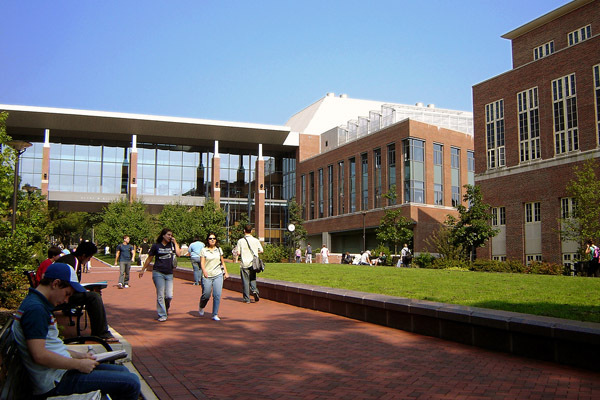
Penn State University, a renowned institution of higher learning, extends its reach far beyond its main campus in State College, Pennsylvania. Through a network of branch campuses strategically located across the state, Penn State offers a diverse range of academic programs and opportunities to students throughout Pennsylvania. This comprehensive map of Penn State branch campuses reveals a dynamic educational landscape, providing access to higher education for a wide range of individuals and communities.
A Network of Educational Opportunity
Penn State’s branch campuses are not mere extensions of the main campus. They are distinct entities, each with its own unique character and identity, catering to the specific needs and interests of their local communities. These campuses offer a wide array of undergraduate and graduate degree programs, certificates, and continuing education opportunities, encompassing fields such as business, engineering, health sciences, education, and the arts.
The Importance of Branch Campuses
The establishment of branch campuses reflects Penn State’s commitment to providing accessible and affordable higher education to all Pennsylvanians. These campuses serve as crucial hubs for learning and community engagement, fostering economic growth and social development within their regions. Their presence strengthens local economies by providing skilled graduates to meet the needs of regional industries and businesses.
Navigating the Penn State Branch Campus Map
The Penn State branch campus map is a valuable tool for students, prospective students, and anyone interested in understanding the university’s expansive reach. It provides a visual representation of the geographical distribution of these campuses, highlighting their proximity to major cities and towns across Pennsylvania. This map facilitates informed decision-making for individuals seeking a Penn State education, allowing them to explore the various campuses and their unique offerings.
Key Features of the Penn State Branch Campus Map
The Penn State branch campus map typically includes the following key features:
- Campus Locations: The map clearly identifies the location of each branch campus, using markers or symbols to distinguish them.
- Campus Names: Each campus is labeled with its official name, providing easy identification.
- Major Cities and Towns: The map often includes major cities and towns in the vicinity of the campuses, facilitating contextual understanding of their locations.
- Road Network: Major highways and roads are often depicted on the map, aiding in understanding the accessibility and connectivity of each campus.
- Zoom Functionality: Interactive maps often offer zoom capabilities, allowing users to explore specific areas of interest in greater detail.
Exploring the Penn State Branch Campuses
The following is a brief overview of some key Penn State branch campuses, highlighting their unique characteristics and contributions:
- Penn State Abington: Located in Abington Township, Montgomery County, Penn State Abington offers a vibrant campus experience with a focus on undergraduate education. It boasts strong programs in the liberal arts, business, and health sciences.
- Penn State Berks: Situated in Reading, Berks County, Penn State Berks provides a dynamic learning environment with a focus on STEM fields and business. Its location near the heart of Pennsylvania’s agricultural region fosters connections with local industries and businesses.
- Penn State Brandywine: Located in Media, Delaware County, Penn State Brandywine offers a diverse range of undergraduate and graduate programs, particularly in the fields of business, education, and the arts.
- Penn State DuBois: Situated in DuBois, Clearfield County, Penn State DuBois provides a welcoming and supportive learning environment with a strong emphasis on STEM fields and career preparation.
- Penn State Erie, The Behrend College: Located in Erie, Erie County, Penn State Erie, The Behrend College, is renowned for its strong engineering programs and its commitment to research and innovation.
- Penn State Harrisburg: Situated in Middletown, Dauphin County, Penn State Harrisburg offers a diverse range of undergraduate and graduate programs, with a particular emphasis on public policy, business, and health sciences.
- Penn State Hazleton: Located in Hazleton, Luzerne County, Penn State Hazleton provides a close-knit community atmosphere with a focus on undergraduate education in fields such as business, education, and the arts.
- Penn State Lehigh Valley: Situated in Center Valley, Lehigh County, Penn State Lehigh Valley offers a diverse range of undergraduate and graduate programs, with a particular focus on business, engineering, and health sciences.
- Penn State Mont Alto: Located in Mont Alto, Franklin County, Penn State Mont Alto provides a scenic and tranquil campus environment with a focus on undergraduate education in fields such as forestry, environmental science, and business.
- Penn State New Kensington: Situated in New Kensington, Westmoreland County, Penn State New Kensington offers a close-knit community atmosphere with a focus on undergraduate education in fields such as engineering, business, and the arts.
- Penn State Schuylkill: Located in Schuylkill Haven, Schuylkill County, Penn State Schuylkill provides a supportive learning environment with a focus on undergraduate education in fields such as business, engineering, and the arts.
- Penn State Shenango: Situated in Sharon, Mercer County, Penn State Shenango offers a diverse range of undergraduate and graduate programs, with a particular focus on business, engineering, and health sciences.
- Penn State Wilkes-Barre: Located in Wilkes-Barre, Luzerne County, Penn State Wilkes-Barre provides a welcoming and supportive learning environment with a focus on undergraduate education in fields such as business, education, and the arts.
- Penn State Worthington Scranton: Situated in Dunmore, Lackawanna County, Penn State Worthington Scranton offers a diverse range of undergraduate and graduate programs, with a particular focus on business, engineering, and health sciences.
- Penn State York: Located in York, York County, Penn State York provides a vibrant campus experience with a focus on undergraduate education. It boasts strong programs in the liberal arts, business, and health sciences.
FAQs about Penn State Branch Campuses
1. What are the advantages of attending a Penn State branch campus?
Attending a Penn State branch campus offers several advantages, including:
- Smaller class sizes: Branch campuses typically have smaller class sizes, allowing for more personalized attention from professors.
- Close-knit community: Branch campuses often foster a strong sense of community, creating a welcoming and supportive learning environment.
- Access to Penn State resources: Students at branch campuses have access to the same resources and support services as students at the main campus, including libraries, career services, and student organizations.
- Affordable tuition: Penn State branch campuses offer competitive tuition rates, making higher education more accessible to a wider range of students.
- Location convenience: Branch campuses are strategically located throughout Pennsylvania, providing convenient access to education for students residing in various regions.
2. Can I transfer credits from a branch campus to the main campus?
Yes, credits earned at a Penn State branch campus are typically transferable to the main campus in State College. It’s important to consult with an academic advisor to ensure that the specific courses you’ve taken will be accepted for transfer.
3. Are there any differences in the quality of education between branch campuses and the main campus?
No, there is no difference in the quality of education between Penn State branch campuses and the main campus. All Penn State campuses adhere to the same academic standards and offer the same rigorous curriculum.
4. Are there opportunities for research and internships at branch campuses?
Yes, many branch campuses offer opportunities for research and internships, providing students with valuable hands-on experience and the chance to contribute to ongoing projects.
5. What are the housing options available at branch campuses?
Housing options at branch campuses vary depending on the specific campus. Some campuses offer on-campus housing options, while others provide off-campus housing resources and recommendations.
Tips for Choosing a Penn State Branch Campus
- Consider your academic interests: Choose a campus that offers programs aligned with your academic goals and career aspirations.
- Explore campus locations: Visit the campuses you’re interested in to get a feel for the environment and the surrounding community.
- Connect with current students: Reach out to current students at the campuses you’re considering to gain insights into their experiences.
- Review program offerings: Carefully review the specific programs offered at each campus to ensure they meet your needs.
- Consider your budget: Evaluate the tuition rates and other costs associated with each campus to ensure they fit your financial constraints.
Conclusion
Penn State’s branch campuses play a vital role in expanding access to higher education and fostering economic and social development across Pennsylvania. These campuses offer a diverse range of academic programs, a welcoming learning environment, and valuable opportunities for students to prepare for successful careers. The Penn State branch campus map serves as a valuable resource for students, prospective students, and anyone seeking to understand the university’s commitment to serving the people of Pennsylvania. By understanding the unique characteristics and offerings of each campus, individuals can make informed decisions about their educational journey and embark on a path toward personal and professional growth.
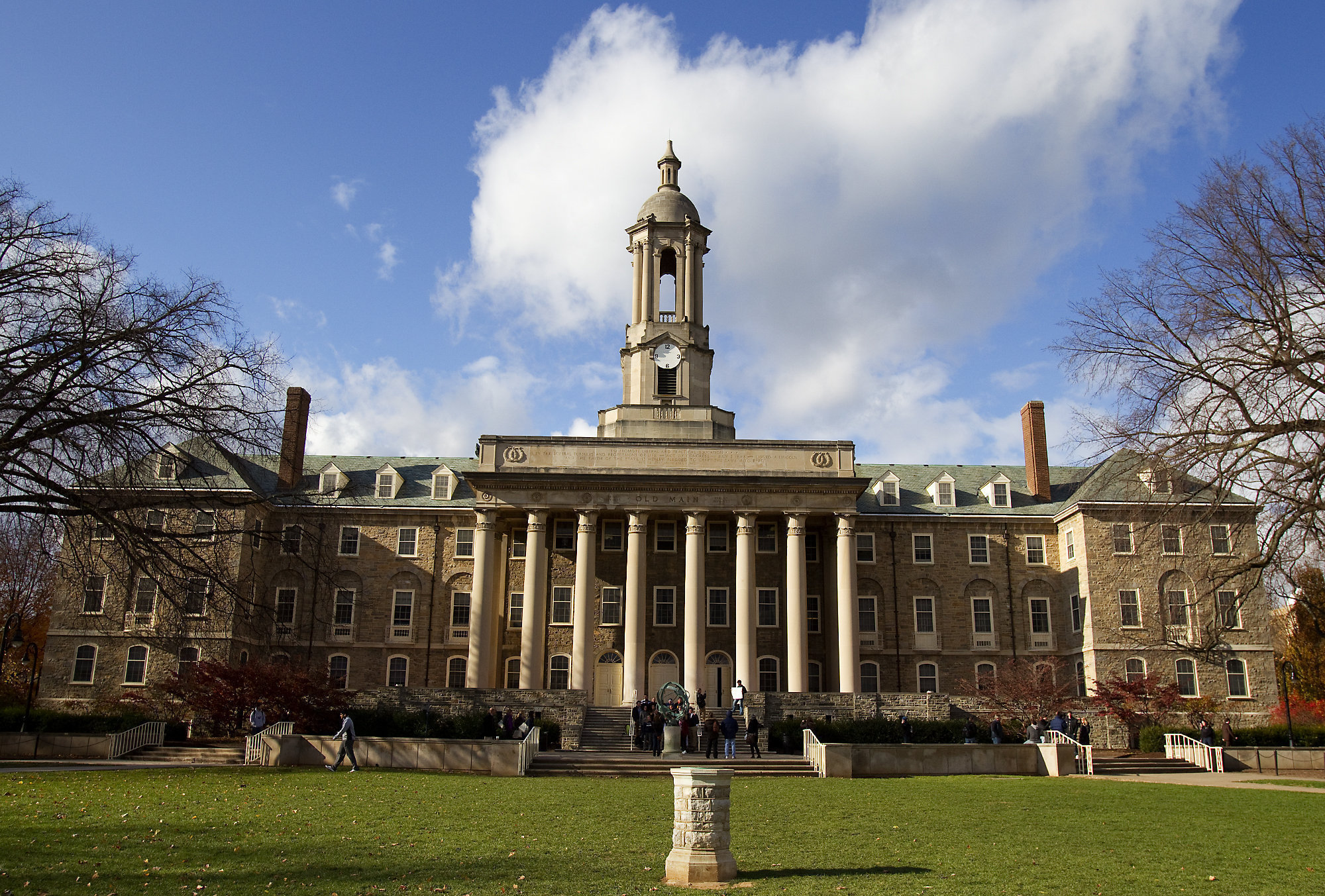

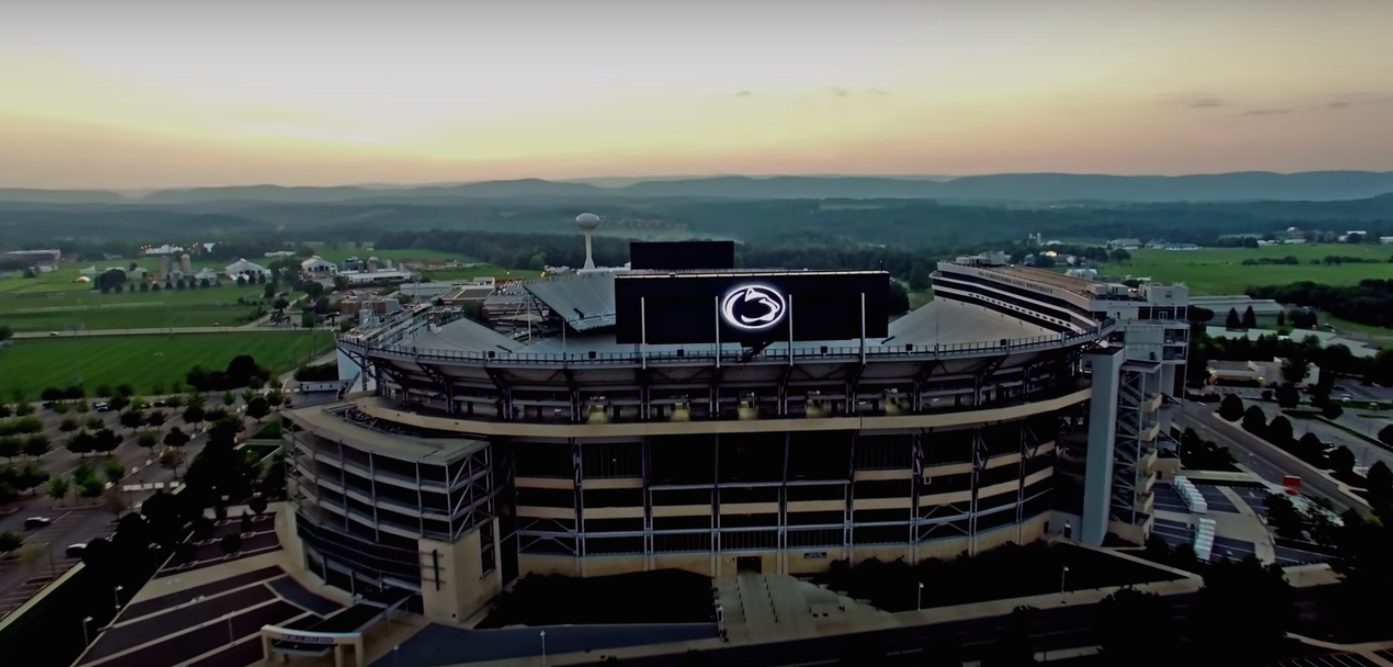
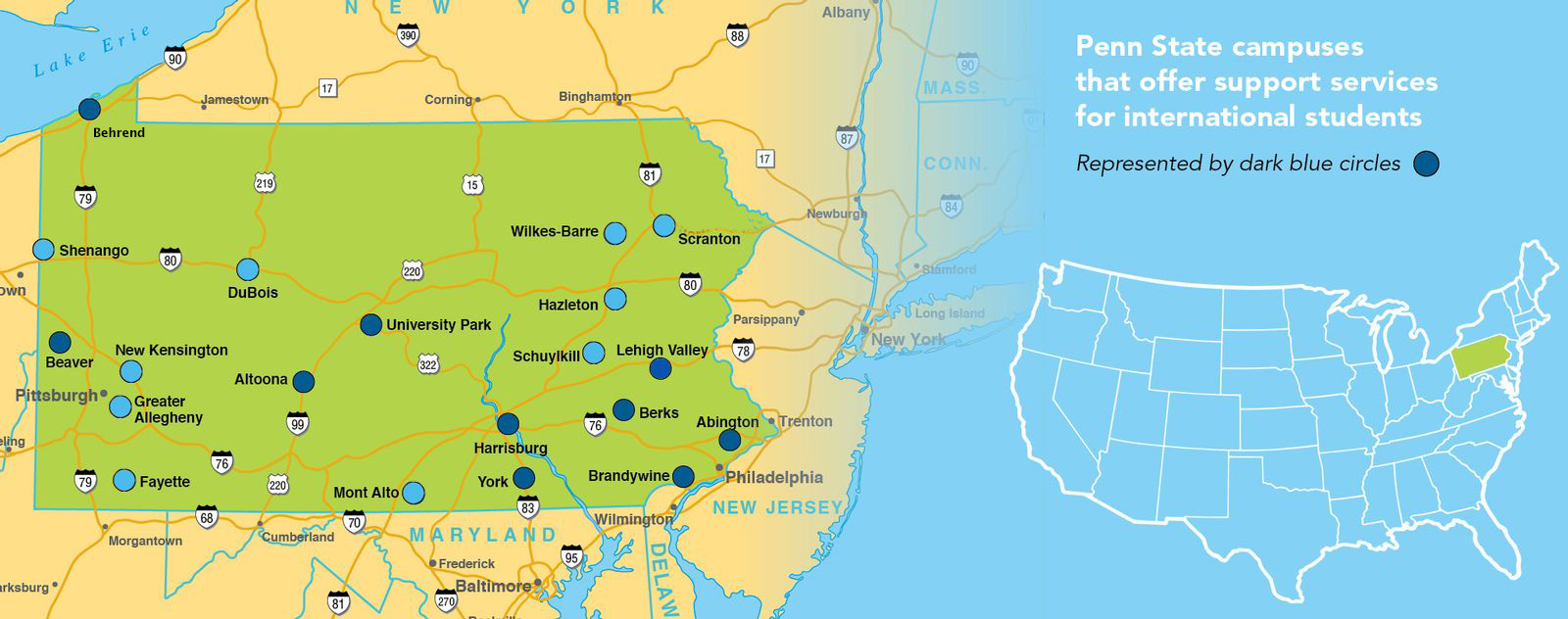

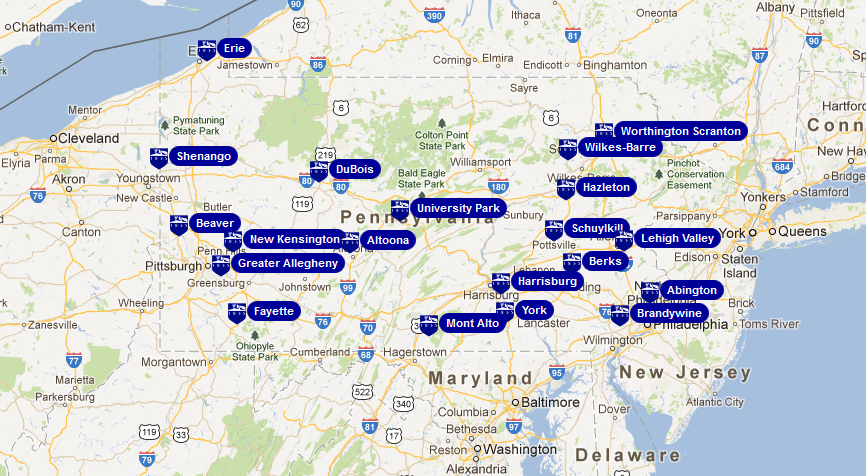
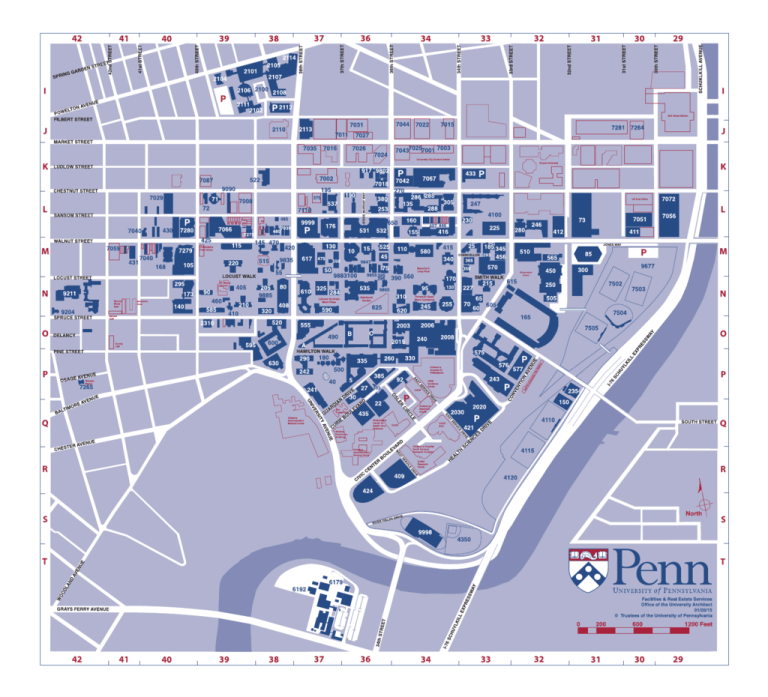
Closure
Thus, we hope this article has provided valuable insights into Penn State’s Branch Campuses: A Network of Educational Excellence Across Pennsylvania. We thank you for taking the time to read this article. See you in our next article!